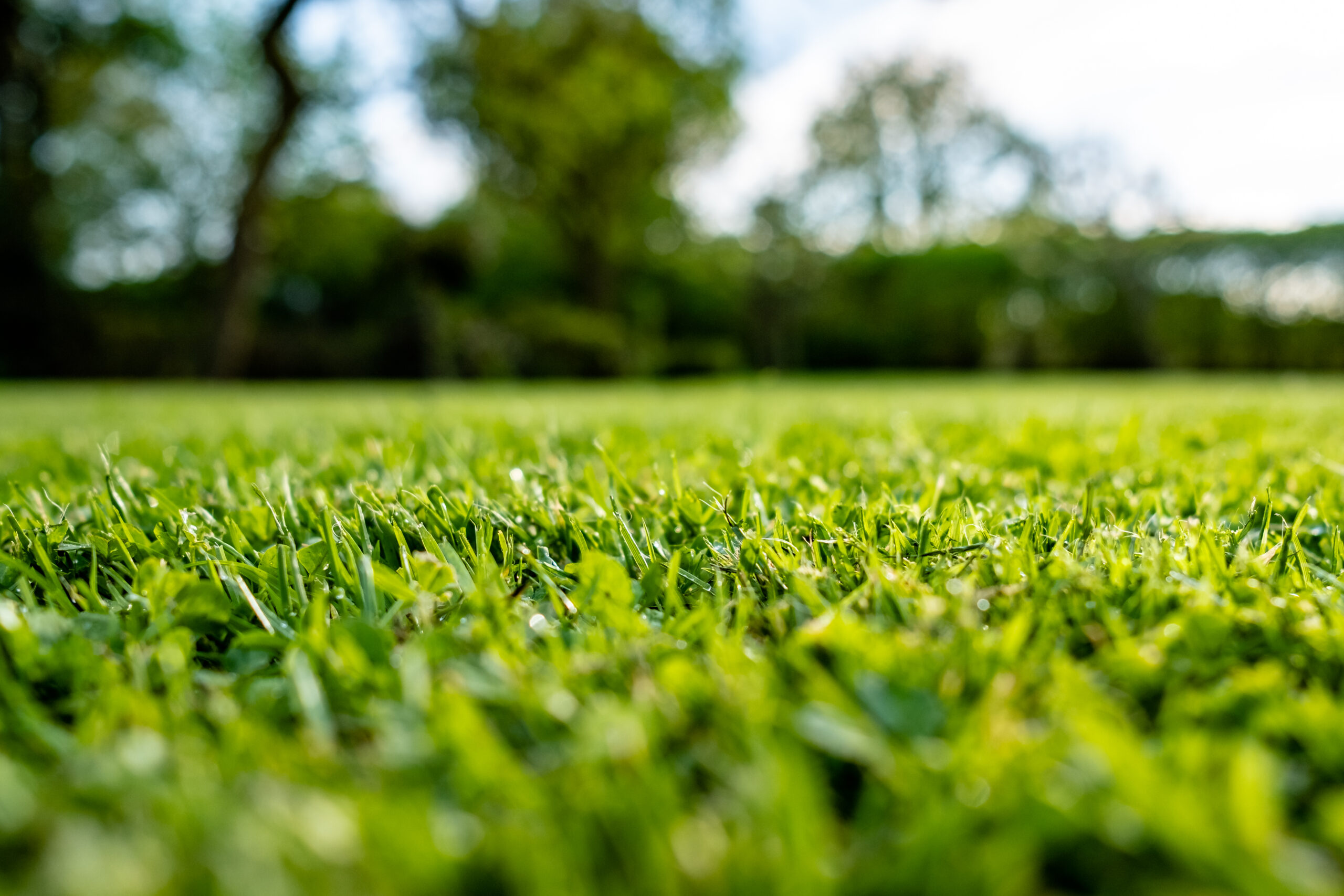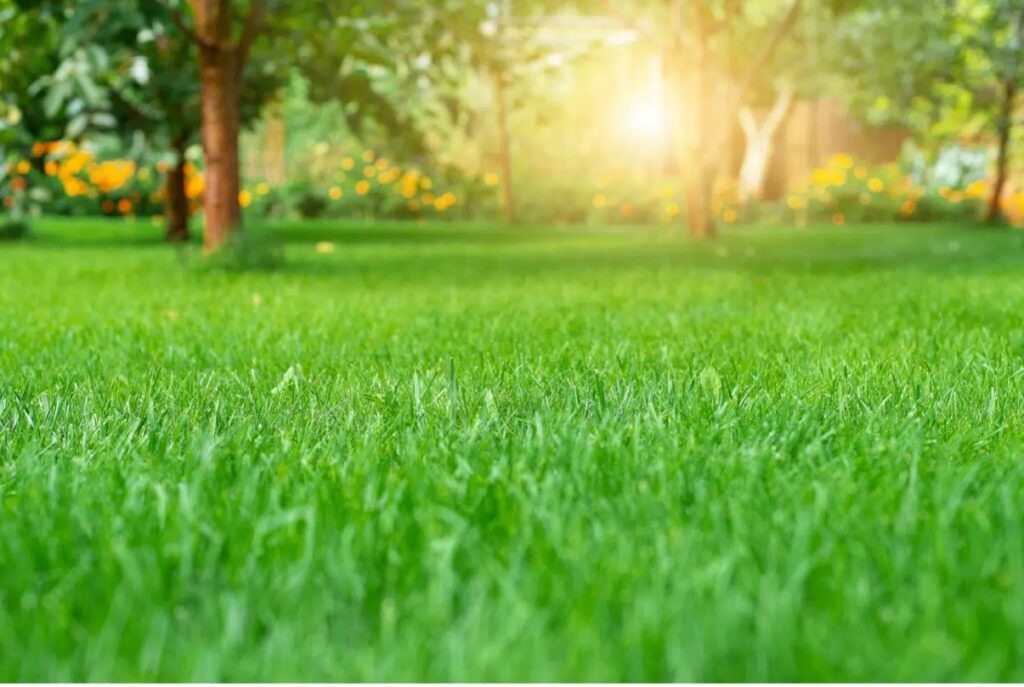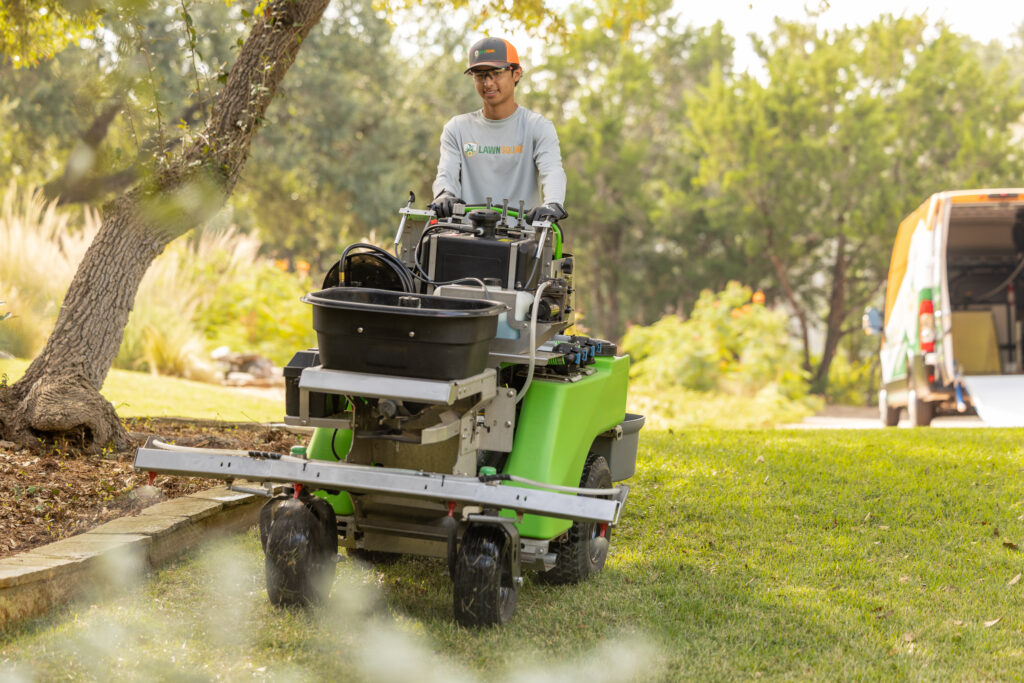Maintaining a green and healthy lawn requires more than just mowing. The local weather and soil conditions make fertilizing and weed control essential for effective lawn care. Without the proper nutrients, grass struggles to grow, allowing weeds the opportunity to spread and detract from your lawn’s appearance.
At Lawn Squad®, we specialize in customized lawn care solutions tailored to the specific needs of homeowners in the area. Our expertise in the local environment and common lawn issues enables us to help you achieve a beautiful yard that enhances your home’s curb appeal.
Cincinnati’s Climate and Soil Conditions
Cincinnati experiences hot, humid summers and chilly winters, which creates a favorable environment for various types of grass. However, this climate also promotes rapid weed growth.
The region is predominantly characterized by clay soil, which compacts easily, making it difficult for grassroots to establish and absorb water. To maintain a healthy yard, it’s essential to nourish the grass and eliminate unwanted weeds.
Early Spring Lawn Care
As the soil warms in March, it’s the perfect time to begin lawn care. Early spring fertilization provides grass with essential nutrients for robust root development. Applying a weed preventer at this stage prevents weed seeds from germinating, ensuring they don’t absorb water and nutrients meant for the grass. An early start contributes to a thick and vibrant lawn throughout the season.
Choosing the Right Fertilizer for Cincy Lawns
Selecting the appropriate fertilizer ensures your lawn receives essential nutrients for robust growth. Granular fertilizers that release nutrients gradually promote even grass growth and overall health.
They prevent the loss of nutrients due to runoff and provide consistent support. Incorporating iron can enhance the grass’s green color without accelerating its growth rate. Analyzing the soil can reveal nutrient deficiencies, assisting you in choosing the best fertilizer for a healthier lawn.
Effective Weed Control Strategies
Weeds absorb sunlight, water, and nutrients from grass, typically growing faster and denser. Addressing weeds promptly helps maintain the strength of grass. Some treatments prevent weed seeds from germinating, effectively stopping crabgrass from appearing.
Other solutions eliminate existing weeds without harming the grass. Regularly inspecting the yard and addressing weeds before they proliferate contributes to keeping the lawn healthy.
Aeration and Overseeding
In Cincinnati, the clay soil tends to compact easily, making it difficult for grass roots to grow and absorb essential water and nutrients. When the soil becomes overly dense, grass struggles, resulting in weakened areas. Aeration helps break up the soil, facilitating the movement of air, water, and nutrients to the roots.
This process creates optimal conditions for roots to develop more deeply and robustly. The ideal time for aeration is in the fall, as cool-season grasses are most actively growing during this period.
Overseeding immediately after aeration fills in thin areas, contributing to a denser lawn that’s more resistant to weeds and diseases. A well-aerated yard remains robust and performs better during dry conditions, foot traffic, and seasonal changes. Weekly aeration assists in breaking up the soil, facilitating the growth of thick, healthy grass.
Mowing Practices for a Healthy Lawn
The health and appearance of your yard are significantly influenced by your mowing practices. Setting your mower blades to a height of 3 to 3.5 inches encourages deeper root development and helps shade out weed seedlings. Regularly mowing, while ensuring that no more than one-third of the grass blade is removed at a time, reduces stress on the turf and promotes vigorous growth.
Irrigation Techniques Suited for Cincinnati
Ensuring your lawn receives sufficient water is essential for maintaining thick and healthy grass, particularly during the hot summer months. A lawn that lacks adequate hydration becomes weak, increasing its susceptibility to weeds, diseases, and drought stress. Rather than watering lightly every day, it’s more effective to water deeply and infrequently, which encourages roots to grow deeper into the soil, enabling the lawn to better endure dry spells.
The ideal time to water is in the early morning when cooler temperatures facilitate soil absorption of moisture and minimize evaporation. While evening watering may appear more convenient, it can leave the grass damp overnight, potentially leading to fungal and mold growth.
Monitoring rainfall levels is crucial to avoid both overwatering and underwatering. If your lawn doesn’t receive around 1 to 1.5 inches of water weekly from rainfall, consider supplementing with irrigation to prevent dryness.
Addressing Common Lawn Pests
Grass in Cincinnati can be harmed by bugs if not properly cared for. One significant issue is grubs, which are the larvae of beetles. These small, white worms reside underground and consume grass roots, resulting in a patchy and weakened lawn.
If you observe birds or other animals digging in your yard, they may be searching for grubs to eat. Treating grubs in late summer, when they are still small and actively feeding, can prevent considerable damage before they mature into beetles.
Chinch bugs can also pose a problem, particularly during hot and dry weather. These minute insects extract moisture from grass, leading to dry, dead patches that can expand rapidly. Lawns with excessive thatch are more vulnerable because chinch bugs favor warm, arid conditions. Reducing thatch through aeration and applying appropriate treatments can help manage their population.
Sod webworms and armyworms are common pests that can harm lawns. Sod webworms are tiny caterpillars that feed on grass at night, creating brown, uneven areas. Armyworms travel in swarms and can quickly devastate large sections of grass if not addressed. If you notice irregular brown spots or chewed grass, examining the lawn for these pests can help you take action before the damage escalates.
Fungal diseases frequently occur in this region due to warm, humid weather. Brown patches and dollar spots thrive in damp conditions, resulting in large discolored areas on the grass. To prevent fungus growth, maintain your lawn by mowing regularly, watering early in the day, and ensuring proper drainage.
Benefits of Professional Lawn Care Services
Maintaining a green, weed-free lawn requires time, effort, and a strategic approach. A lawn care company can assist by analyzing your soil, crafting a tailored fertilization plan, and controlling weeds and pests. Equipped with the right tools and expertise, they are capable of addressing the unique challenges posed by your region’s climate and soil conditions.
Collaborating with a reliable lawn care service ensures your yard remains healthy and visually appealing without added labor. Adopting proper lawn care techniques results in a vibrant, green lawn that enhances your home’s curb appeal and provides a pleasant environment for outdoor activities throughout the year.
Call Us for All Your Lawn Care Needs
Investing in a professional lawn care program enhances the appearance of your property and supports the overall health of the local ecosystem in your community. If you’re ready to transform your lawn into a green, lush oasis, contact us today to learn how our lawn care services can positively impact your life.






